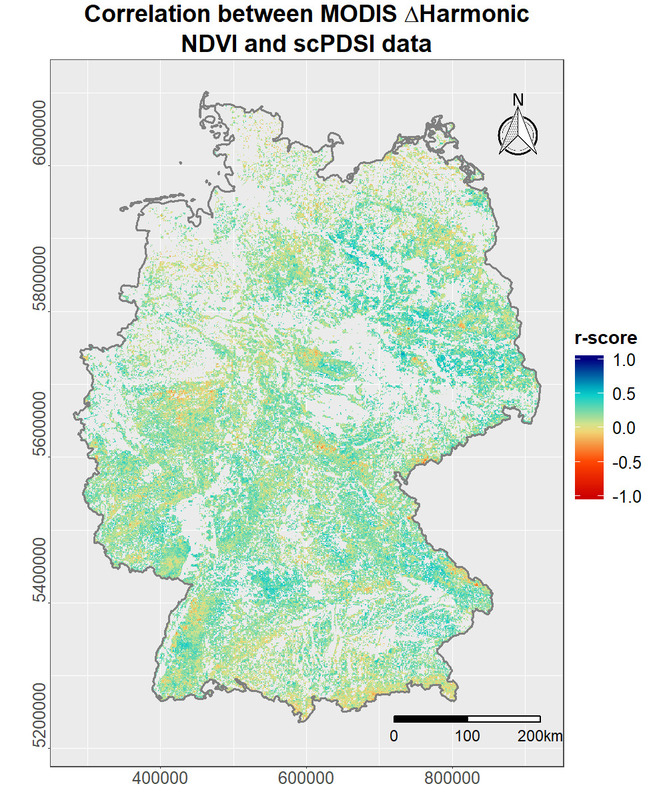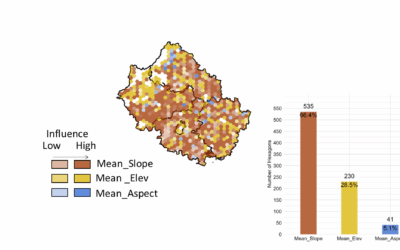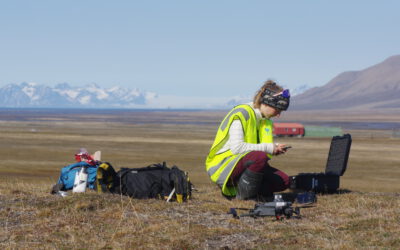
Marius Philipp is going to defend his M.Sc. thesis on November 22nd at 10 am in room 1.009 (OKW86). The title of his thesis is “Potential of harmonic analysis using remote sensing data for studying the effects of climate change induced weather extreme events on forest ecosystems”. From his abstract: Forest systems provide crucial ecosystem functions to our environment, such as balancing carbon stocks and influencing the local, regional and global climate. An increasing trend of climate change induced weather extreme events, including drought, are hereby a major challenge for forest management. Within this context, the application of remote sensing data provides a powerful means for quick, operational and inexpensive analysis over large spatial scales and time. That said, the potential of optical satellite data is limited by weather induced noise, mainly caused by cloud contamination. In order to mitigate these effects of noise and data gaps in remote sensing time-series analysis, harmonic modeling can be a powerful tool for addressing said issues. This thesis was dedicated to studying the potential of harmonic analysis for quantifying the phenological response to drought events in German forests. The harmonic modeling method was compared with a z-score standardization approach and correlated against both, meteorological and topographical data. Optical satellite imagery from Landsat and the MODIS was used in combination with the three vegetation indices NDVI, NBR and the TC based Greenness.








